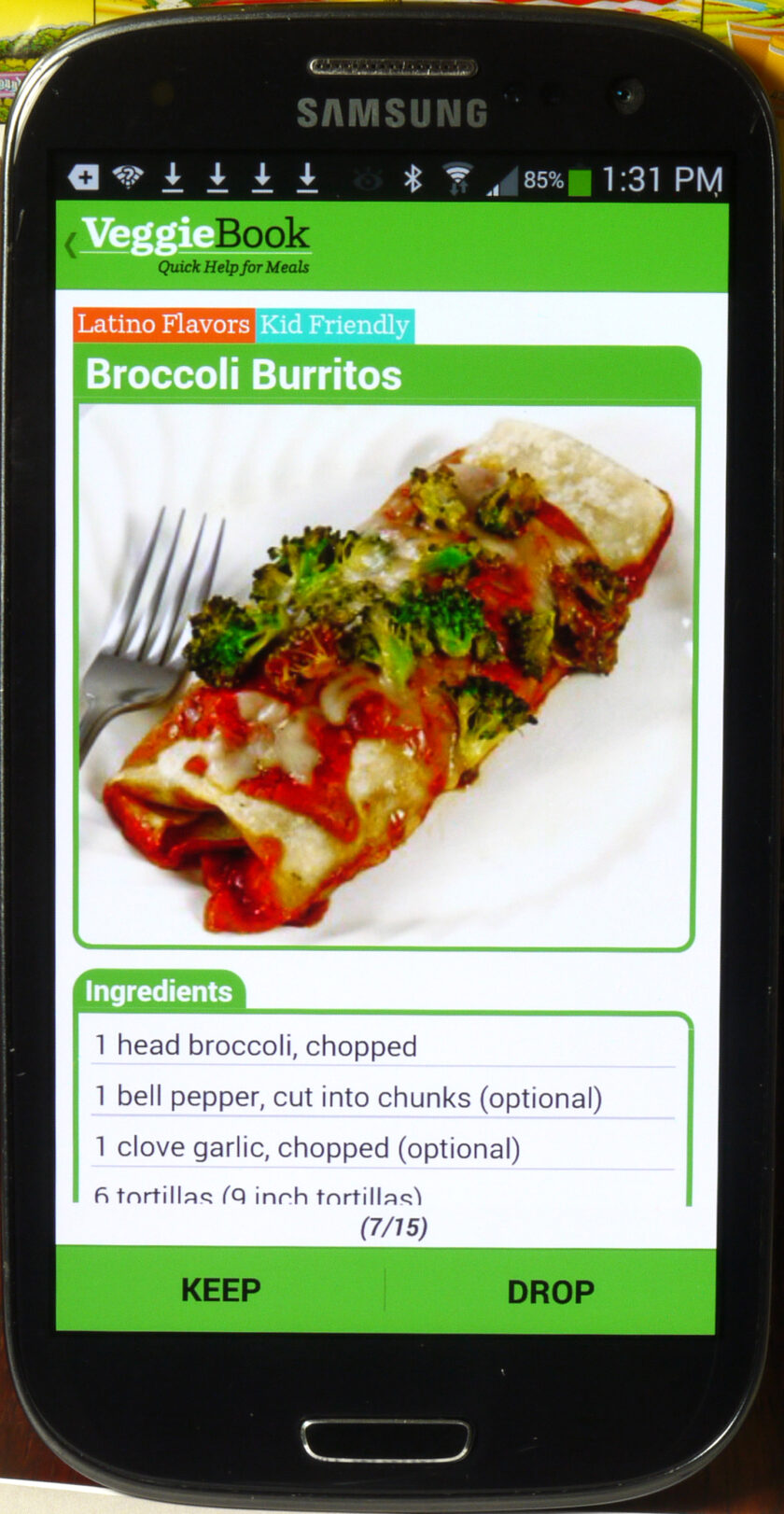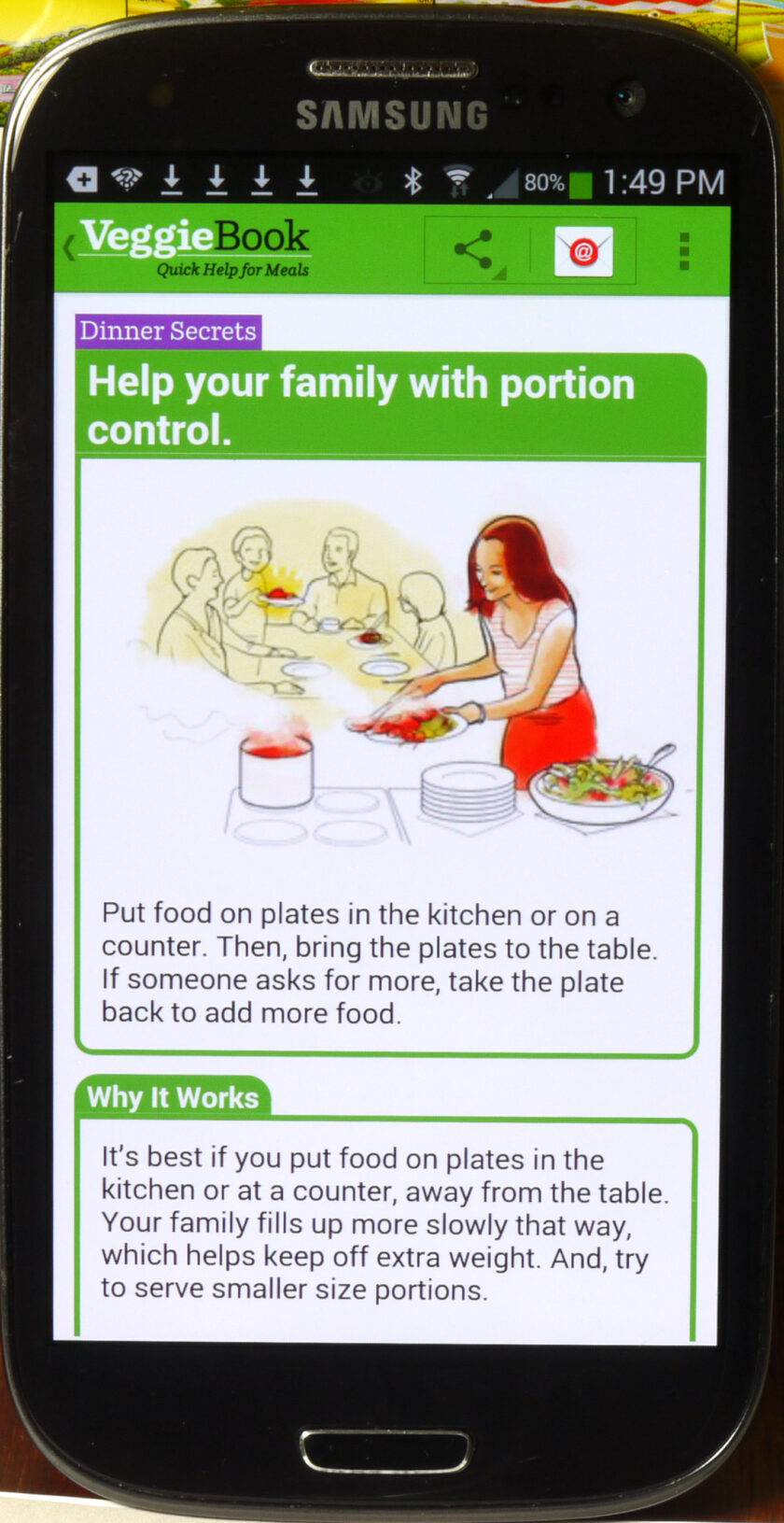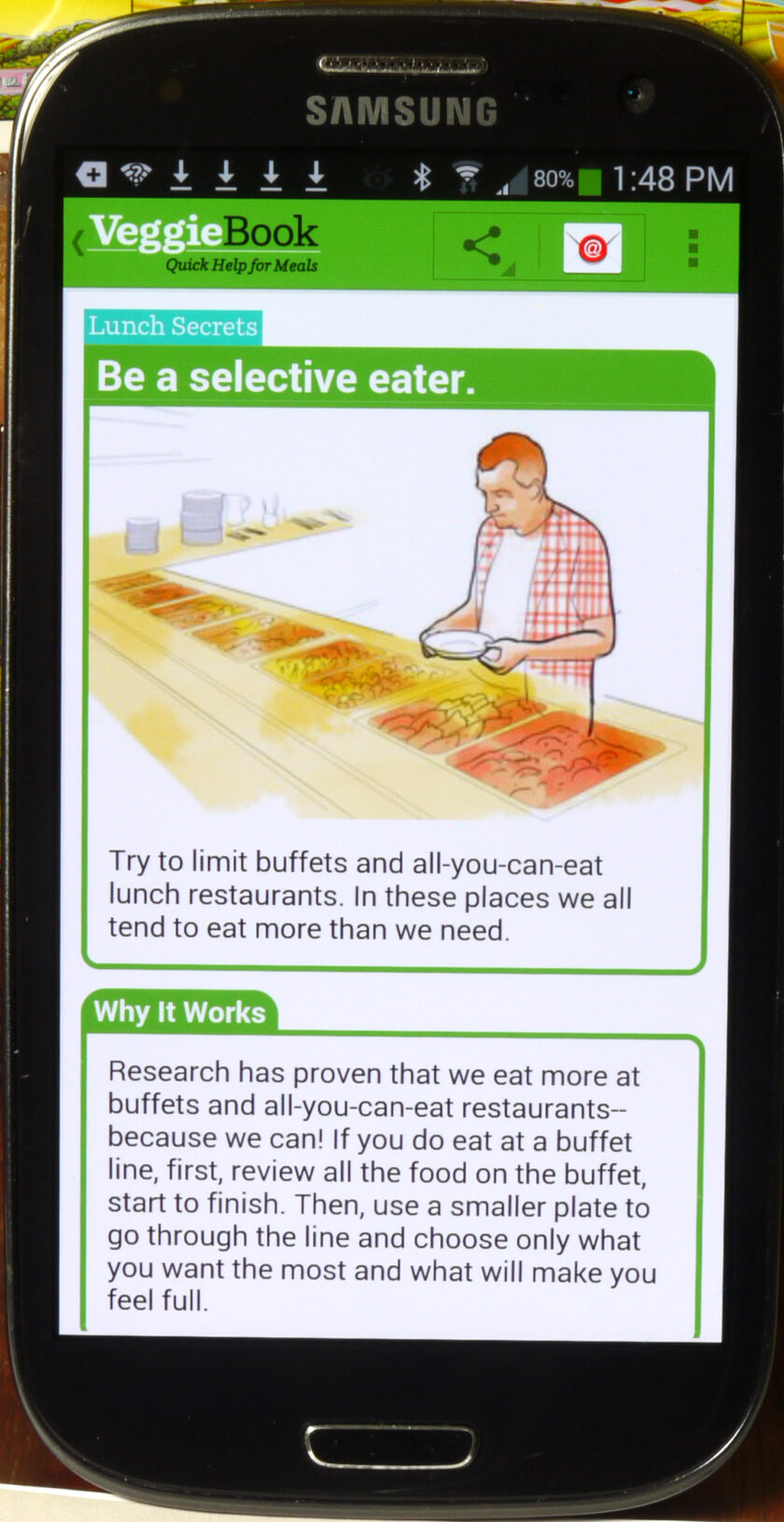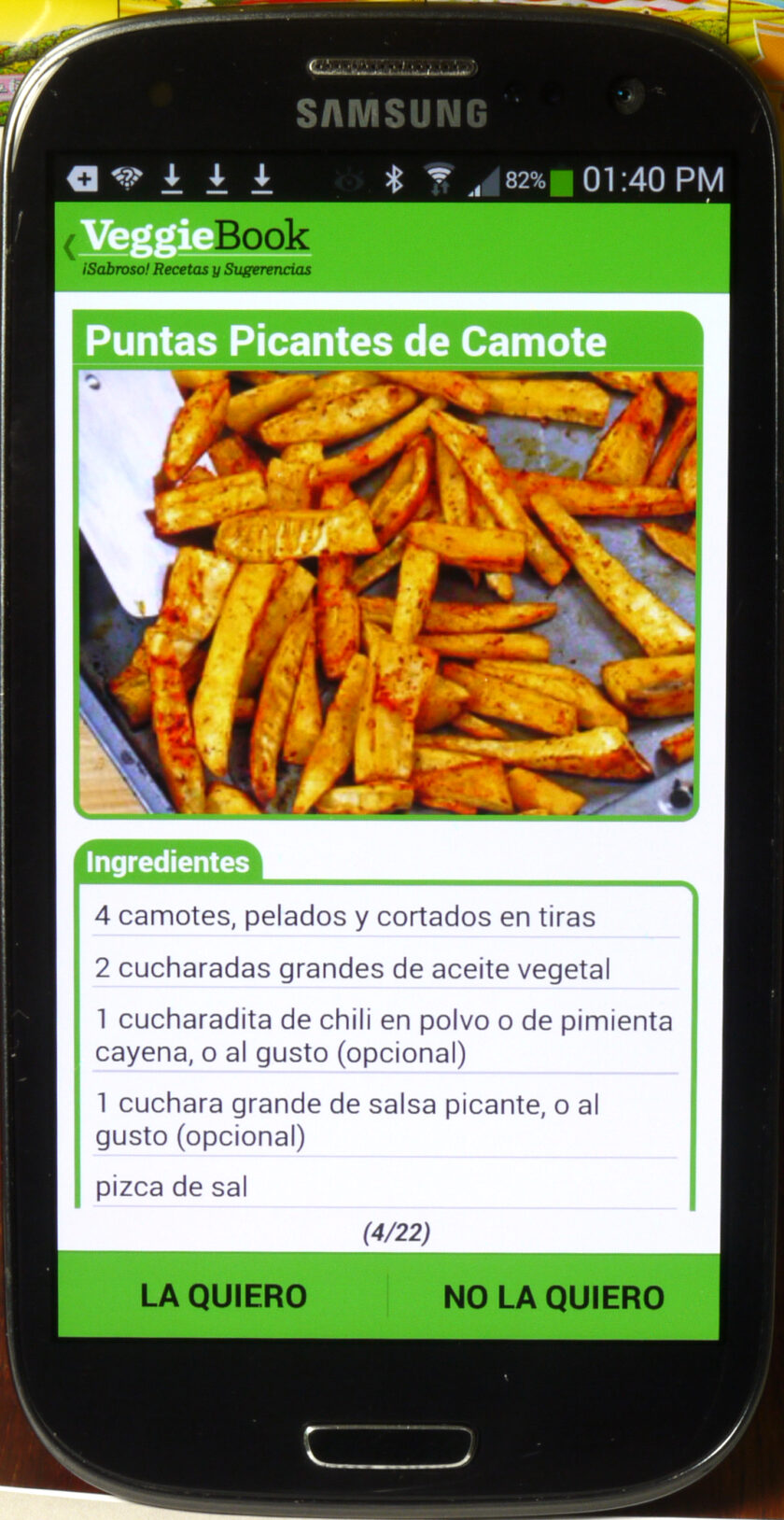An easy-to-use mobile app helps clients of community food pantries consume significantly more vegetables, according to research by USC investigators who developed the application.
The app, called VeggieSecrets in the Apple Store and VeggieBooks + SecretsBooks in the Google Play Store, provides recipes and other tips for healthy family eating. Vegetables in the diet are crucial for improved nutrition and the control of many chronic diseases, such as diabetes and obesity.
The app was built by Annenberg School for Communication and Journalism faculty Peter Clarke, Ph.D., and Susan Evans, Ph.D. It is free, and available in English and Spanish. Development was funded by grants from the United States Department of Agriculture.
Several years in the making, the app was designed to help families make better use of the fresh produce they receive from food pantries, and to increase their knowledge of healthy eating. The app invites household cooks to customize the recipes they want, according to their needs and tastes, and to save just the tips they desire about better breakfasts, lunches, dinners, snacks, and shopping for food.
Community food pantries typically offer standardized bags of food, so their clients have little say in the produce and other groceries they receive. “Household cooks often find themselves with bags packed with unfamiliar foods that they don't know how to cook and that are unappealing to their kids and families,” explained Clarke. As a result, much of the food goes to waste and families have a hard time getting recommended servings of veggies and fruits.
Kids are eating and cooking—and enjoying—their vegetables.
Clarke and Evans conducted a randomized, controlled study involving approximately 300 families using 15 food pantries, in various communities in the Los Angeles area.
"Users of the app prepared 38 percent more vegetable dishes than families who did not have the app," said Evans. "It really boosted the use of fresh vegetables that pantry clients are offered. Often, cooks didn’t know how to prepare them in ways their families liked, or that appealed to young kids, or that fit in with the kind of flavors they're used to eating. Many clients told us that they only knew one way to prepare a vegetable, and that the app got them out of their cooking rut.”
Use of the app and consumption of vegetables appeared to not only maintain but increase over time, said Clarke and Evans. This is a key indicator of its long term potential to prevent disease and improve health in users. "People may download a lot of health apps, but they quickly stop using most,” said Clarke. "The evidence is that people started integrating our app into their regular grocery shopping as well as their visits to food pantries."
Customizable for individual tastes and preferences.
“The application contains hundreds of recipes, all simple to make but that pack a flavor punch,” said Evans. Recipes lean toward healthier and tasty preparations of vegetables, such as roasting, rather than boiling, or easy-to-make soups from fresh ingredients. While the focus is on vegetable dishes, it also contains ideas about combining vegetables with meat, she explained. Recipes with an ethnic spin are included, such as those with flavors and styles from Latin, Asian, or African American cuisine.
It is easily customizable, allowing users to create personal recipe books as they find the dishes their families like best. It is also easily accessed on the go, to enable efficient grocery shopping.
A section of the app called “Secrets to Better Eating” offers some 80 simple, no-cost ideas culled from nutrition research literature that have been shown to improve health and eating. These include tips to save money during grocery shopping, and simple practices such as keeping cereal boxes off the breakfast table to help avoid pouring a second bowl and overeating. Secrets are illustrated to aid understanding.
"In the families we studied, we saw that the app really changed the conversation about food in a household, and got kids involved with cooking," said Clarke.
The SC CTSI assisted the researchers throughout the several-year development and testing of the mobile app, said Clarke. That help included assistance in identifying funding opportunities, and in study design and data analysis consulting from SC CTSI statistician Wendy Mack, Ph.D.
Clarke and Evans are currently securing new funding to expand promotion of the app.





